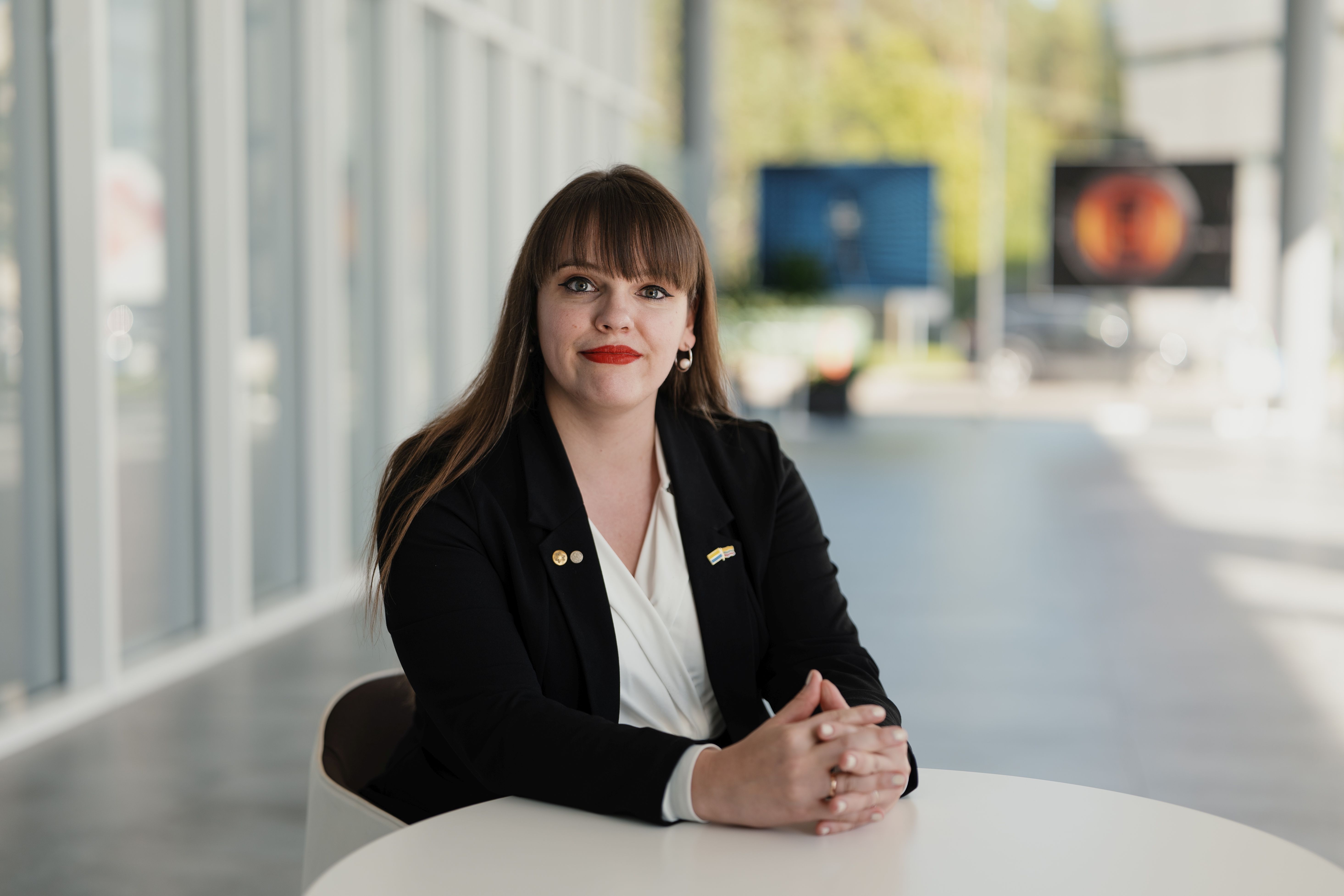Where Humanity, Technology, and the Future Meet: Dr Mažena Mackoit-Sinkevičienė Invites Us to Seek Answers at the MIT Conference
 Discussing humanity’s impact on the world and its development is complex, yet necessary. This topic will be at the heart of the international conference ‘Human and More-Than-Human Futures: Innovating Technologies for Coexistence’, taking place on 9–10 October and initiated by the Massachusetts Institute of Technology (MIT) together with Lithuanian consortium partners, including Vilnius University (VU). According to Dr Mažena Mackoit-Sinkevičienė, a researcher at the Faculty of Physics of Vilnius University and a moderator of one of the conference discussions, the very title of the event invites us to rethink our relationship with the world we inhabit.
Discussing humanity’s impact on the world and its development is complex, yet necessary. This topic will be at the heart of the international conference ‘Human and More-Than-Human Futures: Innovating Technologies for Coexistence’, taking place on 9–10 October and initiated by the Massachusetts Institute of Technology (MIT) together with Lithuanian consortium partners, including Vilnius University (VU). According to Dr Mažena Mackoit-Sinkevičienė, a researcher at the Faculty of Physics of Vilnius University and a moderator of one of the conference discussions, the very title of the event invites us to rethink our relationship with the world we inhabit.
As Dr Mackoit-Sinkevičienė notes, the time has come to look at the world through the lens of transhumanism and posthumanism and to see the future of technology not only as progress or a threat but also as an ethical, social, and philosophical project in which the human being is essential, yet not the only player.
‘At the same time, we are trying to overcome climate, health, and social crises by relying on cutting-edge technologies – artificial intelligence, quantum technologies, and synthetic biology – that are already transforming our lives, economies, and values. But this raises a question: are technologies created solely for humans? Can we build systems that sustain harmonious coexistence with all forms of life? At this conference, I believe it is essential to discuss not only what technologies are being developed, but also how they serve, what kind of world they shape, and what solutions they help us find,’ said VU physicist Dr Mackoit-Sinkevičienė.
In the discussion on creating technologies for coexistence, she intends to highlight several key themes that will define not only the future of manufacturing but also our broader perspective on technology, sustainability, and the role of industry in society. The first topic is quantum precision and its potential. Today, this is no longer a matter of theory but of practice, allowing for the optimisation of existing processes while unlocking entirely new possibilities in material design, production, and planning.
‘The second topic is the revolution of advanced materials. I intend to focus on how quantum technologies, data analysis, and digital twins are helping us create a new generation of materials. The third one is sustainability. The manufacturing sector must become circular and planet-friendly, which requires technologies, a clear strategy, and cooperation. Finally, another key point for discussion is the evolving relationship between humans and technology. I seek to explore how the role of humans in manufacturing is shifting – from worker to decision-maker, observer, and even algorithms tutor,’ noted the researcher.
In her view, the relationship between humanity, technology, and science as a whole is often complicated by the fact that we have moved far beyond the world dominated by ‘classical physics’. Today, progress often relies on our ability to grasp phenomena that seem nearly beyond comprehension. The best example is quantum physics, whose very essence remains elusive, especially when we try to understand ‘what all of this really means’. This is precisely what Richard Feynman had in mind with his famous remark that ‘anyone who claims to understand quantum theory is either lying or crazy’. Quantum physics works, but it fundamentally contradicts our everyday logical thinking.
‘And yet, our understanding is taking a new form. Working in the field of quantum technologies, particularly quantum metrology, I see that although we still cannot ‘explain’ quantum phenomena in an intuitive way, we can measure, control, and apply them in practice. In other words, we are not only talking about quantum physics; we are working with it. Therefore, at a practical level, we can achieve far more than was possible in Feynman’s time,’ concluded Dr Mackoit-Sinkevičienė.